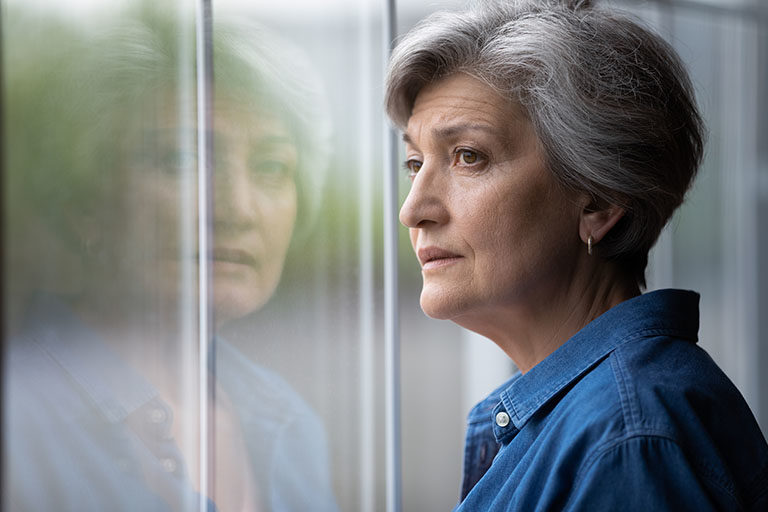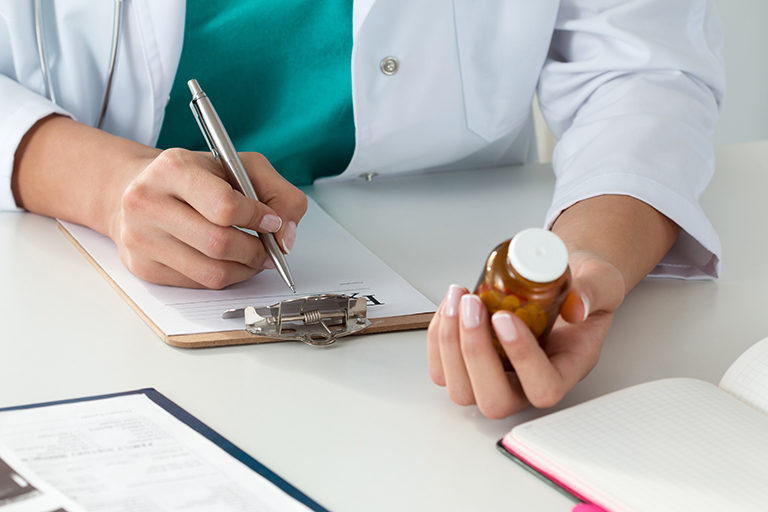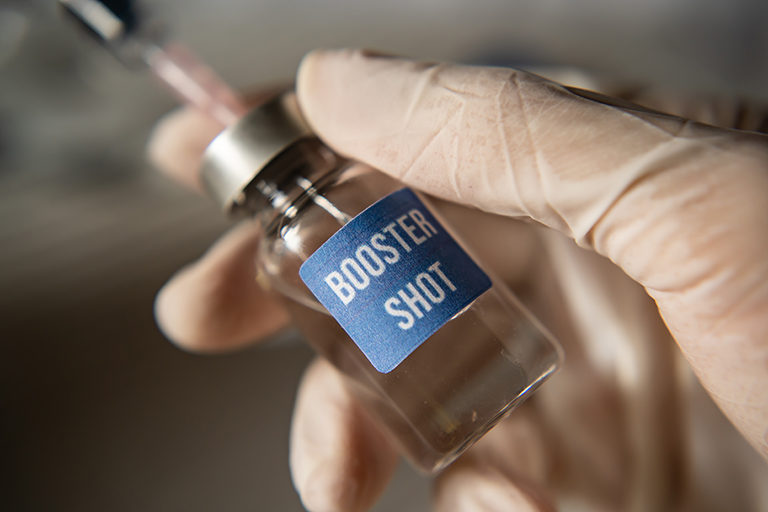
Living Well at Home

Over the past two years, medical professionals and researchers have been developing solutions to help us fight COVID-19. These solutions include not only preventive measures (like vaccines), but also treatments.
If have tested positive for COVID-19 and you experience severe symptoms, you should go to an emergency room. There they can evaluate whether you need to be admitted. If you aren’t sure if you should go to the hospital, contact your primary care provider first. Some individuals with severe illness from COVID-19 may need to stay in the hospital. But often, hospitals send COVID-19 patients home to recover, even if they have symptoms.
If you have recently tested positive for COVID-19 and are not experiencing severe illness, you may be eligible for treatments which reduce the chance that you will get sick enough to need a hospital stay.
How do I know if I am eligible for COVID-19 treatment?
Older adults and other high-risk individuals may be eligible for COVID-19 treatment. This includes:
- People over 65
- People of any age with certain chronic or underlying health conditions
To learn more about whether you fit into these categories, visit the CDC website.
How do I get treatment for COVID-19?
Treatments for COVID-19 only work if started within the first few days. It’s important to find out right away if you are eligible for treatment, even if your symptoms are mild at first.
Contact your primary care provider right away after testing positive for COVID-19.
- If you are considered high-risk, they may prescribe treatment.
- If you are experiencing severe symptoms, they can tell you if you should go to the hospital. At the hospital, were you will be evaluated for treatment.
If you don’t have a primary care doctor or are unable to contact a healthcare provider quickly, you may want to visit a Test to Treat location, where you can get diagnosed and receive treatment in one visit.
The only way to get treatment for COVID-19 is to reach out proactively. For the treatments to work, you must seek help right away after testing positive.
If you’re not eligible for treatment, talking to a healthcare provider is still a good idea. They may recommend ways to relieve symptoms and support your body’s natural defenses:
- Taking medications, like acetaminophen or ibuprofen, to reduce fever
- Drinking water or receiving intravenous fluids to stay hydrated
- Getting plenty of rest to help the body fight the virus
What COVID-19 treatment options are available?
The FDA authorized emergency use of several COVID-19 treatments. They are intended for individuals at high risk of serious illness. According to the CDC:
- Monoclonal antibody treatments could help the immune system better recognize and respond to the virus.
- Oral antiviral medications can help slow the spread of the illness in the body.
These treatments may not be recommended in all cases. If you test positive for COVID-19, talk to your primary care provider about what is best for you.
Treatments can only reduce the chance of severe illness in those already infected. They do not prevent you from getting sick. Vaccines are still the best way to reduce your chances of getting COVID-19.
How can I find out more information?
If you test positive for COVID-19, there are several steps you can take.
- Contact your primary care provider.
- Contact the CCA Nurse Advice Line or your CCA Care Partner:
- In Massachusetts: 855-210-1772 (TTY 711)
- In Rhode Island: 833-346-9222 (TTY 711)
- Reach out to your state’s public health department.
- Click here for information for Massachusetts residents.
- Click here for information for Rhode Island residents.
Even as restrictions roll back, it is important to protect yourself. For the latest CDC and local guidance on COVID-19 prevention, click here.
For more information on COVID-19, treatment options, and vaccines, check out:
- National Institute of Health: COVID-19 Treatment Guidelines
- FDA: Know Your Treatment Options for COVID-19
- CDC: Myths and Facts About COVID-19 Vaccines
You can also keep up with the latest news on COVID-19 by visiting the Living Well at Home COVID-19 Alerts page.
Related Articles


